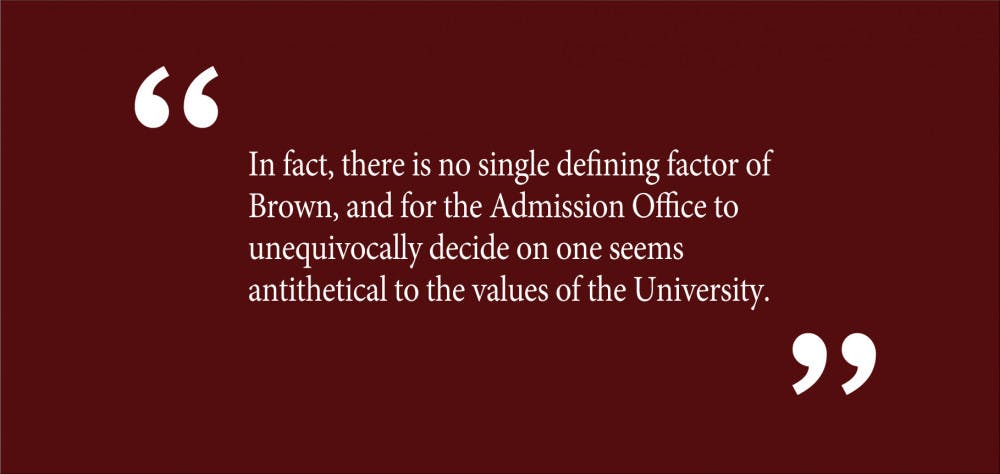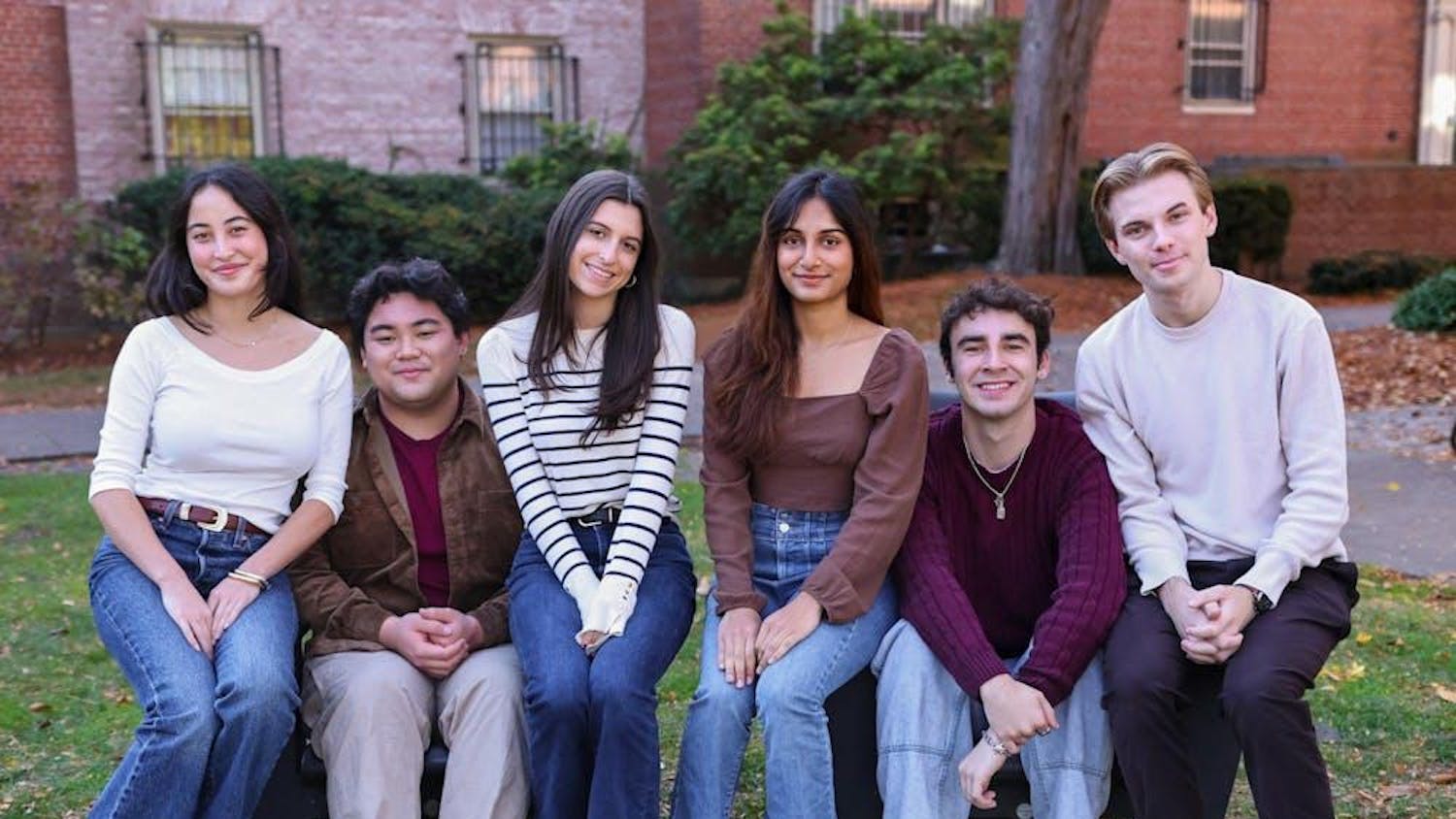Since the eighth grade, attending Brown had been my biggest pipe dream. I was absolutely infatuated with its idiosyncratic and captivating community and was immediately able to envision myself within it. When it finally came time for me to pour my heart into my Early Decision application four years later, I was devastated to find that one of the supplemental essay questions had been significantly altered (since the 2015 admission cycle, it turned out). No longer would any applicant be asked, “Why Brown?”
Instead, I was asked to discuss my specific interest in Brown’s Open Curriculum. The Open Curriculum is a distinct feature of Brown, especially in comparison to other Ivy League universities, but it is not Brown’s single defining factor. In fact, there is no single defining factor of Brown, and for the Admission Office to unequivocally decide on one seems antithetical to the values of the University.
The Open Curriculum emphasizes the purely academic aspects of Brown by asking applicants to wax poetic about the fields of study that excite them the most. But the University’s application already inquires about academic interests by asking about intended concentration(s). As a school that strives beyond strictly scholastic pursuits, Brown’s application needs to provide more space for applicants to express their personal values and interests beyond the classroom (and beyond extracurriculars) and how they explicitly connect to the University — something their Common Application essay cannot do. Brown is a mentality — a state of being. A question as simple as “Why Brown?” challenges applicants to speak to the ethos of a place that is so much more than its renowned Open Curriculum.
In my case, I wanted to write about a lengthy list of quirky traditions and personal perspectives of life at Brown that I had compiled over the years, drawn from the privilege of several campus visits and extensive research. I knew these were the reasons that would show my admission representative not only how I might adapt academically to Brown, but also how my personality and passion for the school would interact with the greater community and leave a lasting impact on College Hill.
The first few drafts of my Open Curriculum essay were hard to write. I was fortunate to be in a position where I could receive counsel and support throughout the college process, and my college counselor kept telling me that I was not answering the question whatsoever. Her advice went something like this: “You clearly want to answer ‘Why Brown?’,” she said. “Sadly, that is no longer the question. But I want you to write this ‘Why’ essay; flesh it all out. Then, maybe once it’s out of your system, you can come back to the Open Curriculum question.”
I did as she suggested and ended up with a 580-word love letter to Brown that was significantly stronger than the rest of my application. I adored that essay. However, I was forced to put it aside for a while and focus on the questions that were part of the application. I finished the requirements, but when I sat down to do a final proofread, something still felt incomplete.
I knew the “Why Brown” essay was the missing piece of my application, so I pasted it into the Common Application’s “Additional Information” section — feeling simultaneously satisfied and petrified.
The essay began, “I’ve been asked ‘Why Brown?’ since I first stepped foot on campus in 2015 by everyone in my life except Brown. It’s the question I’ve always known exactly how to answer. So, I’ve decided to answer it anyway.” What followed was a string of anecdotes, ranging in topic from my Sunday dates with my mother at various open houses around Los Angeles to the horror movie club I started with my friends in fourth grade. This decision was slightly impulsive, but I believe it best allowed me to vocalize my unwavering devotion to Brown.
My makeshift essay even allowed me to exceed the University’s 250-word limit on “Why Brown?” If the question were to make a comeback, it could even be accompanied by an increased word-count. Nonetheless, I believe that any number of words available for applicants to express their own “Open Curriculum” — their individual reasons why this place could feel like home — would benefit those on both sides of the admission process. Brown is so much more than its curriculum; let the applicants speak for themselves as to why.
Dorrit Corwin ’23 can be reached at dorrit@brown.edu. Please send responses to this opinion to letters@browndailyherald.com and op-eds to opinions@browndailyherald.com.





